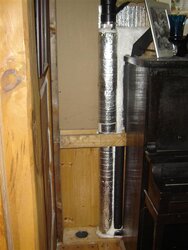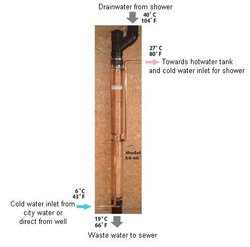I've got a real lemon of a location when it comes to solar DHW. I started looking into the GX exchange heat recovery thingies and figured at best I'd be looking at 4 yrs payback and at worst 10 years. I put it on the back burner as possible, but I'm wondering if anyone else has tried/installed a unit.
Any problems with pressure loss? Any data other than sales brochures?
Any problems with pressure loss? Any data other than sales brochures?



